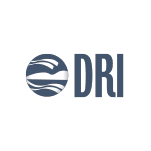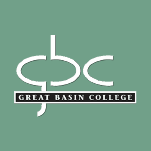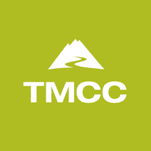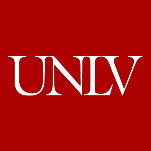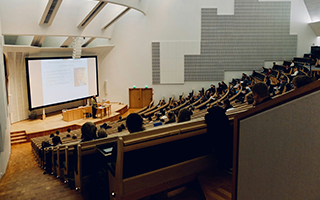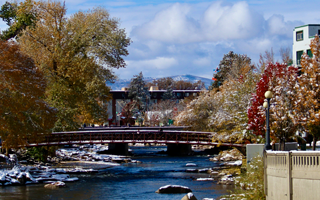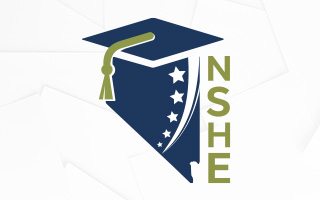Nevada’s Two Public Universities Achieve National Community Engagement Distinction

Pursuing innovation, cultural vitality, and economic development does not begin and end with the physical borders of Nevada’s two public universities, a new distinction earned by both institutions confirms.
Today, the University of Nevada, Las Vegas (UNLV) and the University of Nevada, Reno (UNR) received the Carnegie Classification for Community Engagement, a recognition achieved by just 119 institutions across the country in the 2020 cycle.
The classification from the Carnegie Foundation for the Advancement of Teaching highlights both universities’ commitment to and demonstration of being community engaged. Universities were evaluated based on their collaboration with their larger communities to enrich scholarship, research, and creative activity, enhance curriculum, teaching and learning, and address critical societal issues.
“This recognition highlights our universities’ commitment to creating and building upon reciprocal connections with partners locally, nationally, and internationally,” said Thom Reilly, chancellor of the Nevada System of Higher Education. “Making connections with our communities is a priority for the state’s higher education institutions so that we can better meet the needs of Nevada. I’m proud of our students, faculty, and administrators, whose work is reflected in this prestigious honor.”
The announcement comes on the heels of both UNLV and UNR earning R1 “very high research activity” status, a separate distinction also awarded by the Carnegie Foundation in December 2018. R1 is the gold standard for university research classifications, and both institutions joined an elite pool of only 130 universities with the distinction, an effort that was years in the making.
“Great universities are cornerstones of great communities, and at UNLV we recognize that strong partnerships are essential to help both our university and our region thrive,” said UNLV President Marta Meana. “Today’s announcement reflects our longstanding commitment to working together with our partners to solve challenges and create opportunities for our community. Taken together with our designation as an R1 research institution, this classification demonstrates our continued drive to be the very best that we can be.”
The latest classification is elective, meaning that it is based on voluntary participation by universities. It involves data collection and documentation of important aspects of institutional mission, identity and commitments, and requires substantial effort invested by participating institutions.
“It took an extraordinary level of commitment by the people of our institution to reach this milestone,” said University of Nevada, Reno President Marc Johnson. “Time and again when there have been needs, our people have found collaborative solutions that have profoundly impacted the quality of life of the citizens in every county throughout the state. Added to our classification as an R1 research institution, we now have two highly coveted classifications that speak to the high quality of work at our university.”
University of Nevada, Reno faculty, staff and students recorded more than 45,000 verified hours of community outreach and engagement for the final academic year (2017-2018) used in the application. Highlighted in the application were partnerships aimed at meeting the needs of a rapidly growing region, including providing health care services for Reno’s marginalized populations. A Community Health Alliance partnership provides hands-on training for students and access to behavioral health services for the region’s marginalized citizens from faculty in the Department of Psychology as well as certified professionals in the community.
UNLV is engaged yearly in more than 1,000 community partnership projects. Collaboration with Reinvent Schools Las Vegas — a community schools initiative housed within elementary and middle school campuses in the urban core of the city — was one of 15 key community partnerships highlighted in UNLV’s application. The initiative works to develop systemic solutions to better support the academic and well-being outcomes of children living in poverty in the Las Vegas Valley, with UNLV serving as the research and evaluation arm.
The effort to become classified as a community engaged university was a rigorous one for both universities, requiring input and data from a breadth of units on each campus as well as contributions from numerous faculty and staff members.
“The Board of Regents commends Nevada’s two universities for meeting the nation’s highest standard for community engagement,” said Jason Geddes, chair of the Nevada System of Higher Education Board of Regents. “Strong public universities contribute in so many ways to building vibrant, resilient communities, and we’re proud to see the remarkable positive impact that our universities are making throughout Nevada.”
The Carnegie Foundation awarded 119 institutions with the classification this year, with UNLV and UNR joining the prestigious list for the first time. Both Nevada universities join 240 schools that earned the distinction during the 2015 selection process. Currently, 359 campuses are active holders of this important designation.
The Carnegie Community Engagement Classification is valid until 2026, at which time both universities will need to seek reclassification to retain their status. When universities re-apply for the 2026 cycle, they will be asked to provide evidence of how community engagement has become deeper, more extensive, better integrated, and sustained on their campuses.
About UNLV
UNLV is a doctoral-degree-granting institution of more than 30,000 students and 3,500 faculty and staff that is recognized as “very high research activity” by the Carnegie Classification of Institutions of Higher Education. UNLV offers a broad range of respected academic programs and is on a path to join the top tier of national public research universities. The university is committed to recruiting and retaining top students and faculty, educating the region’s diversifying population and workforce, driving economic activity through increased research and community partnerships, and creating an academic health center for Southern Nevada. Learn more at unlv.edu
About the University of Nevada, Reno
The University of Nevada, Reno is a public research university committed to the promise of a future powered by knowledge. Founded in 1874 as Nevada’s land-grant university, the University serves 21,000 students. The University is a comprehensive doctoral university, classified as an R1 institution with “very high research activity” by the Carnegie Classification of Institutions of Higher Education. Through a commitment to student success, world-improving research and outreach benefiting Nevada’s communities and businesses, the University has impact across the state and around the world. For more information, visit unr.edu.


